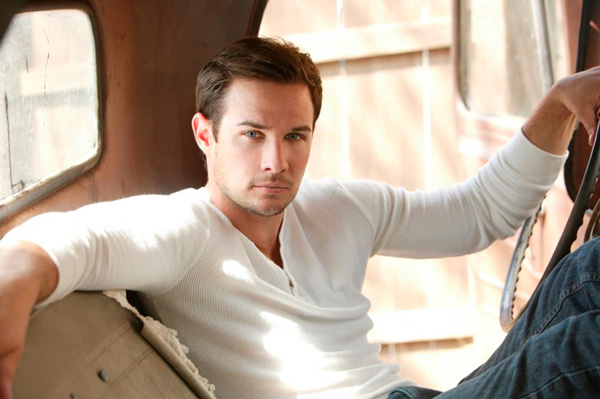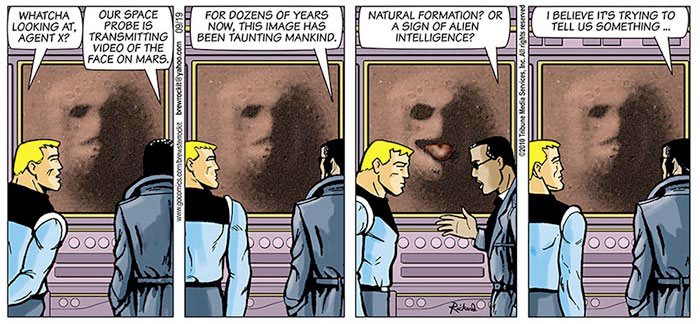
Messages to Mars from celebrities and people of esteem in their fields
Check out what these well-known people are sending to Mars!

George Takei
This is George Takei, here with my husband Brad Takei at our wedding, the happiest day of our lives. Beginning in 1966, I played Lt. Hikaru Sulu, helmsman of a fictional starship known as the Enterprise on a show known as Star Trek. It was our mission to go where no one had gone before, and to ignite the imagination of viewers with what might one day be possible. With that epic story, brought to millions of homes via television technology, we helped launch humankind’s insatiable appetite for space exploration. Thirty-five years later we are now beaming messages at the speed of light to Mars, our nearest neighbor planet. The Enterprise was a vessel of peace, celebrating the diversity of our own species as well as that of other life forms in the galaxy. Ours was a message of peace. We still carry that message as we set forth on another leg of our journey to the stars. And if there are others out there listening, as we often said onboard the Enterprise, 'May you live long and prosper'
—George Takei, actor (Sulu on Star Trek) & husband Brad Takei
Mission Commander

Seth Green & Clare Grant
admirers, first time callers. We're really looking forward to getting to know you better. We can't wait to eventually enjoy one of your many Starbucks and float in the lazy river at Atlantis Mars. Be patient, we're coming. And we've got a sweet music mix for #SpringBreakOnMars. Much love.
—Seth Green & Clare Grant, actors, directors, husband & wife
Mission Commander

Chris Hadfield
Greetings neighbour planet! Thank you for being so patient with our 50 years of probing; you’ve taught us a lot. We Earthlings are explorers by nature, and will come visit Mars in person as soon as we can properly figure out how. Until then, all 7 billion of us wave hello from here on our blue planet, shining brightly in your sky.
—Chris Hadfield, Former Canadian astronaut & ISS Commander
Mission Commander

Bill Nye
Humankind became an interplanetary species fifty Earth years ago today. While this message moved through space at the speed of light, five decades ago we sent our first message to Mars at the best speed our small spacecraft could achieve. We scanned the martian sky. We sniffed at the martian air. We laid our remote eyes on the martian soil. We search for signs of water and water and life, as we sought to learn more of our own origin and perhaps the origin life in our Solar System. It drives us even today. Were we to discover life on Mars, it would change our world back on Earth. We made discoveries 50 years ago that astonished us. Here’s hoping none of us has imagined what discoveries will be made here in the next 50 Earth years.
—Bill Nye, The Science Guy and CEO of The Planetary Society
Mission Commander

Mary Miranda
Mars, one day I hope to visit your planet. The red dirt is a bit too country for me, maybe Blake Shelton would like it, but that's okay, your mystery holds enough romance for me to visit. Elon Musk, our current day Tony Stark says that we will have a million people on your planet in the next century. I hope that I am one of those people! Buzz Aldrin has been saying "Get Your AS**to Mars" for years, even before he was training for his Apollo 11 mission to the Moon.
Astronomy is one of my passions. We need to learn more about the universe we live in. Uwingu, Thank you for putting together this campaign to provide grants for space research, education, and exploration so that OUR generation can get to Mars and beyond! This is a special message to NASA, Congress, and the United Nations -- as AMERICANs, we want to lead humankind's adventures off our planet and take our technologies to deep space and other planets!
—Mary Miranda, Season 4 of The Voice - Team Shakira
Mission Commander
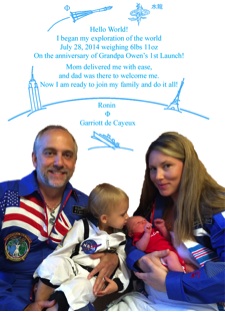
Richard Garriott de Cayeux
Hello Mars! Here on Earth, we have looked in wonder at you since we first evolved. Only recently has our species developed the technologies required to finally explore the solar system. My father Owen is a NASA astronaut & I always wanted to explore space. I eventually made my own space voyage, a private mission to the ISS in 2008. But your surface has always beckoned to us. When my own children Kinga & Ronin are grown, I hope my wife Laetitia & I can visit with the whole family! Our youngest, Ronin was born just a few days ago on July 28 2014. That was also the 41st anniversary of his grandfather Owen’s first space flight! We know he is destined to continue our family history as the 1st Spacefaring Dynasty & visit you. I’ve enclosed a picture taken on the day of his birth here on Earth, when he was less than 8 hours old. He donned a flight suit and began to plan his explorations and eventual visit to your surface!
—Richard Garriott de Cayeux, Private Astronaut on Soyuz TMA 13
Mission Commander

Dr. Steve Squyres
Hey Mars: In 1992, I was part of a team that sent a spacecraft called Mars Observer to study you. You killed it. Three days out from orbit insertion and poof, it was gone. We never heard from it again. I took it very hard.
Then, a little over a decade later, I was part of a team that sent two rovers called Spirit and Opportunity to study you. These (if they landed successfully) were designed to last for 90 sols. In contrast to what happened with Mars Observer, this time you smiled on us. Both rovers landed successfully, Spirit lasted six years, and Opportunity is still going after more than ten years. I appreciate it.
So I guess now you and I can call it even.
—Dr. Steve Squyres, planetary scientist and NASA Mars rover PI
Mission Commander

Tariq Malik
Hello, future Mars explorers! I send this message to you from Earth in 2014 with the hope that the first colonists on Mars may one day see this and its accompanying messages and reflect on how far humanity has come. Mars is a tantalizing planet. In science fiction, we know it as a world filled with canals and strange creatures. But the reality is far more compelling. Mars is a place of stark landscapes and perplexing geology. From Earth, it is deep red light in the sea of night. A destination. As I write this from Space.com's New York HQ, we know that Mars was once a wet planet; that life could have survived there if it was there to begin with. But to know for sure if life ever existed on Mars, we will have to go there ourselves. By that time, life will be on Mars in the form of human explorers. Humanity will one day colonize Mars. We have to, if not only because it's there and that is what we do. Explore. And after Mars, the cosmos.
—Tariq Malik, Managing Editor at Space.com
Mission Commander

Dr. Jim Bell
What a thrill to be part of the first wave of human exploration of Mars! But wait, you say, people haven't gone to Mars yet. Not true! Since the 1970s, and continuously since the mid-1990s, people HAVE been exploring Mars. But that exploration has been virtual, through the eyes and ears and arms and legs of our robotic emissaries. Thousands of us, and billions through the wonders of the internet, have had the pleasure of seeing the Red Planet transformed from a fuzzy blob in telescopes to a dynamic, beautiful world with its own unique geology, weather, and planetary history. I confess to being jealous that my silicon-based pals, with names like Spirit and Opportunity and Curiosity, have been able to experience the place first-hand, rather than me. But, thanks to their kind, we KNOW this world. We now know Mars well enough to know that human explorers need to follow our robotic precursors. We need to go, to walk in their tracks, and then to take us further than they could ever go alone
—Dr. Jim Bell, Mars scientist; President of The Planetary Society
Mission Commander

Dr. Peter Smith
Yes, we reach our voices higher than the birds can fly to the realm of the stars and planets. The wonder is that our listener is unknown to us yet we must try to communicate as best we know propelled by our capacity for visions of another world somewhat like ours, but also so different that we are left in awe as Dorothy facing the great and powerful Wizard of Oz. Even though we will one day send humans to Mars, there will always be another more distant planet to carry our dreams.
—Dr. Peter Smith, NASA Phoenix Mars Lander PI
Mission Commander
The ancients wondered at your wandering,
Erratic, ruddy, distant, god of strife.
Yet now we reach you, touch you, pondering
The frail sustainability of life.
We want to learn what dried your plains.
What thinned your air and froze your shattered crust,
What stopped so short those hopeful, early rains,
And left your winds to rustle naught but dust.
We want as well to learn to do no harm,
To give, perhaps, the chance at second birth,
Without imposing error on your charm,
Then learn from you new lessons for our Earth.
On waves alone we send these thoughts today.
Ere long, our messengers will come to you to stay.
—Michael K. Simpson, Executive Director, Secure World Foundation
Mission Commander

Dava Sobel
Dear Mars, Thank you for hosting so many of our robot ambassadors. More are on the way. Many human hearts will follow them. We earthlings feel a strong desire to see ourselves through your rose-tinted skies.
—Dava Sobel, Pulitzer Prize Winning Science Author and Playwright
Mission Commander

Lori Garver
Dear Mars, I have dreamed of visiting you since I was old enough to know about you. I have watched every robot and probe we have sent your way - those that made the trip successfully and those that didn't. I am glad that I live in a country that continues to explore beyond our grasp. It has been my privilege to be a part of the team that has successfully landed and roved your hills and plains. I can't wait to learn more about your history and I look forward to humanities first steps on your dusty surface. I hope future generations will come in peace and treat you well. Ad Astral.
—Lori Garver, former NASA Deputy Administrator
Mission Commander

Mike Helton
This is to help commemorate the early Mariner missions to Mars to learn about that planet and satisfy much curiosity and many questions on its makeup and possible life. After a few flybys, a set of orbiter missions was planned to map the entire planet. Many teams worked several years in preparation for this mission – these included a principal investigator team, a science rep team, a navigation team and the POGASIS (Planetary Orbiter Geometry and Science Instrument Scan) team. All of the plans had to be totally re-done due to 2 major events – one was the failure of Mariner 8 at launch and the other was a major global dust storm on the planet as Mariner 9 was approaching. This delayed mapping for several months due to degraded visibility. The computer programs and plans were designed to accommodate major changes. All programs ran on an IBM 360 main frame, and the POGASIS program simulated photo coverage. The slide rule was used for minor calculations.
—Mike Helton, Former NASA Mariner flight project member
Mission Commander

Bobak Ferdowsi
Exploration is an incredible part of human nature - we explore both to test ourselves and to place ourselves in context. The legacy of space exploration that began in the 1950s and 60s led us off the planet and our spacecraft into the solar system; to the moon, Mars, and eventually to interstellar space. It represents all that we are capable of—overcoming tremendous difficulties and uncertainty to make these missions succeed - and at the same time, defines our relationship to the cosmos. I can think of no better words than President Carter’s on Voyager, "This record represents our hope and our determination, and our good will in a vast and awesome universe."
—Bobak Ferdowsi, Mars rover engineer,
Mission Commander
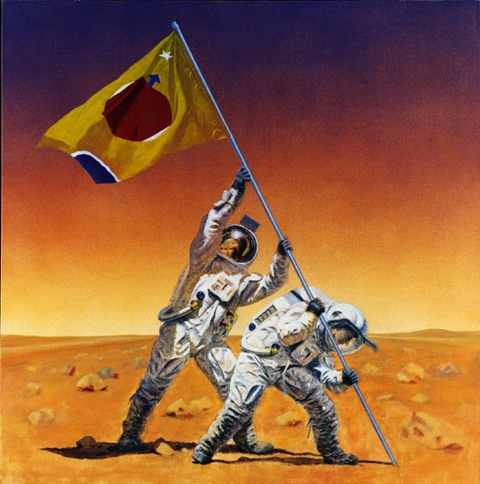
Carter Emmart, PhD
What I would like to know is, how different it feels in reality being there, than expectations that were conjured from the culture of Mars, the desire of generations, the myths built up, the stories you read, the artwork, images and virtual reconstructions you undoubtedly poured over, dreamed of and trained with.
What does Mars smell like? Given the length of your journey, how do you long for Earth? How did you feel when Earth shrank to the bright blue star with its cool gray companion? How special do your catch yourself feeling about your home world, and how alien do you feel now, on your new one? Since you are now masters of likely three worlds, including Earth's Moon, how much more inviting does a sky make you feel on Mars than Earth’s Moon even though you still require almost equal life support? How does asynchronous communication make you feel your isolation? And how does your separation make you feel about humanity's problems with itself?
These are questions which I consider may well haunt humanity wherever it goes, beyond its cradle…
—Carter Emmart, PhD, Director of Astrovisualization, Rose Center for Earth and Space, American Museum of Natural History
Mission Commander
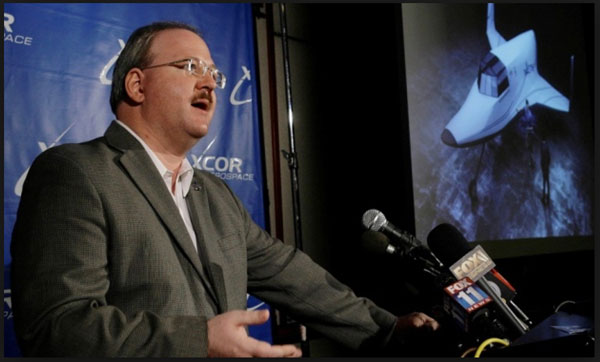
Jeff Greason
Dear Mars—While I once hoped to retire on you, I'll keep this note to what I'm thinking here on Earth when I think about coming to visit you... I’ll begin with a question my son asked me years ago: “Daddy, is it really true they used to go to the moon when you were a boy?” For our kids, the accomplishments of the past are almost mythic. How could it be true that we went to the Moon—much less Mars—If we aren’t still doing it? We are a society of explorers, a society that dares to do great things. But if we want to be explorers in space, if we want to get to you, we have to make it true. While it’s natural for people to assume that because we haven’t been back to the Moon (or ever visited you in person at all) that there's nothing interesting to do or see in space. We just haven’t visited you yet. If we are going to continue to see the value of exploration, we need to start that trip soon. We know it. Thanks for being so patient with us.
—Jeff Greason, CEO XCOR Aerospace
Mission Commander
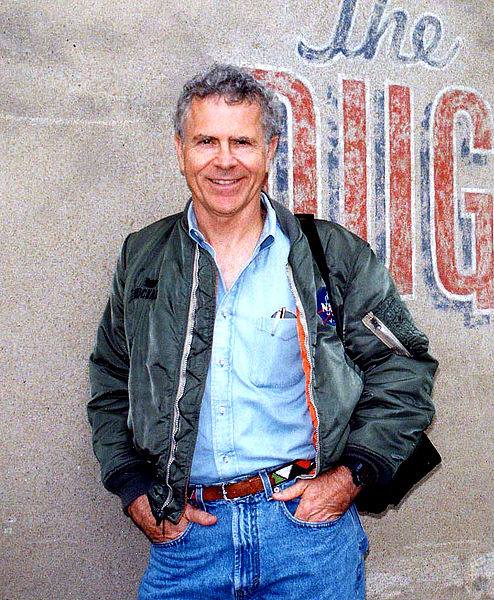
Homer Hickam
'Until I began to build and launch rockets, I didn't know my home town was at war with itself over its children, and that my parents were locked in a kind of bloodless combat over how my brother and I would live our lives. I didn't know that if a girl broke your heart, another girl, virtuous at least in spirit, could mend it on the same night. And I didn't know that the enthalpy decrease in a converging passage could be transformed into jet kinetic energy if a divergent passage was added. The other boys discovered their own truths when we built our rockets, but those were mine.' From the Rocket Boys: A Memoir, 1998. These are the opening words to my memoir of life in Coalwood, West Virginia, where once boys and girls dared to dream of a grander future. May the day come when people living on Mars will read those words and recall the honorable people of Coalwood who gave up their lives so that the hopes and dreams of their children might come true.
—Homer Hickam, author and screenwriter
Mission Commander
Send Your Own Message To Mars!
Say a little or say a lot. Every message option includes:
- A beautiful, downloadable certificate authenticating your participation in the Beam Me To Mars project.
- 50% of your purchase fuels Uwingu grants for space research, education, and exploration.
- An e-mail confirmation sent to you when your message is beamed to Mars on November 28, 2014.
- All messages will also be delivered by hand to Congress, to NASA, and to the United Nations!

